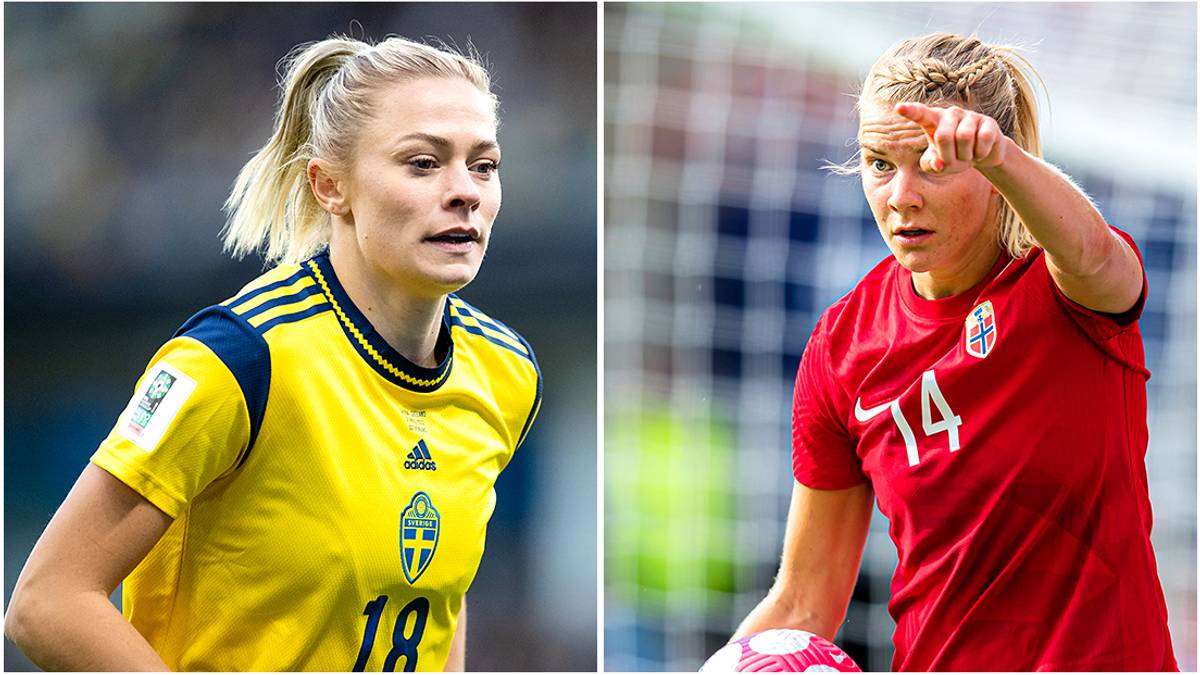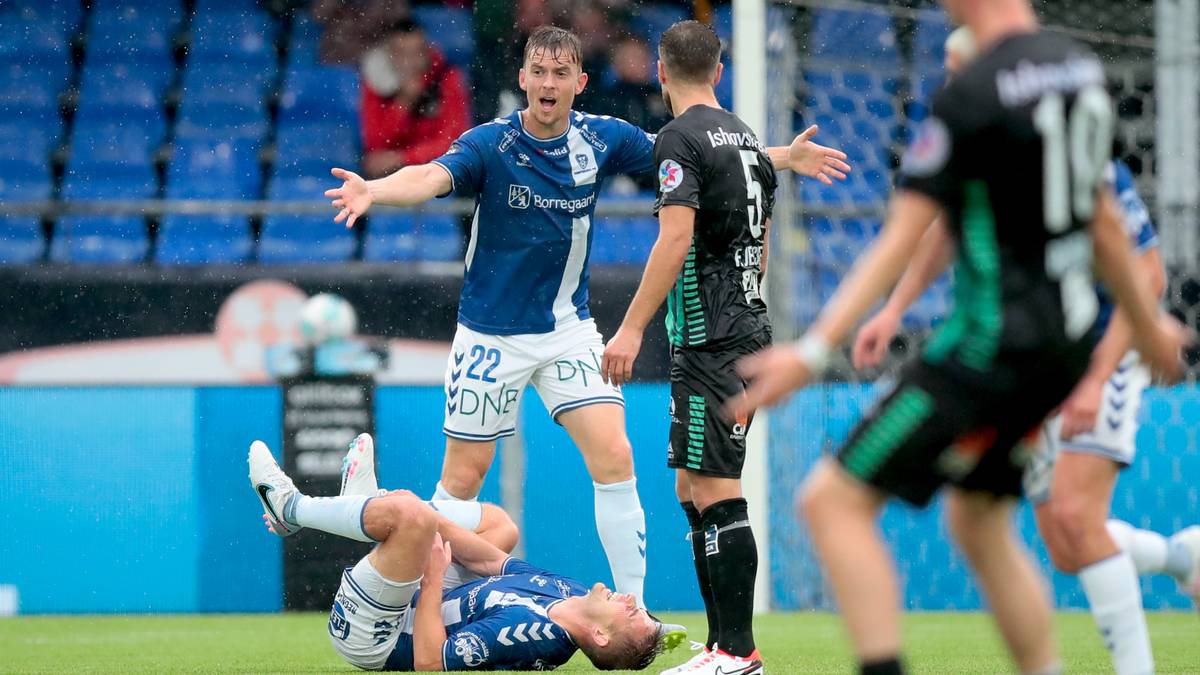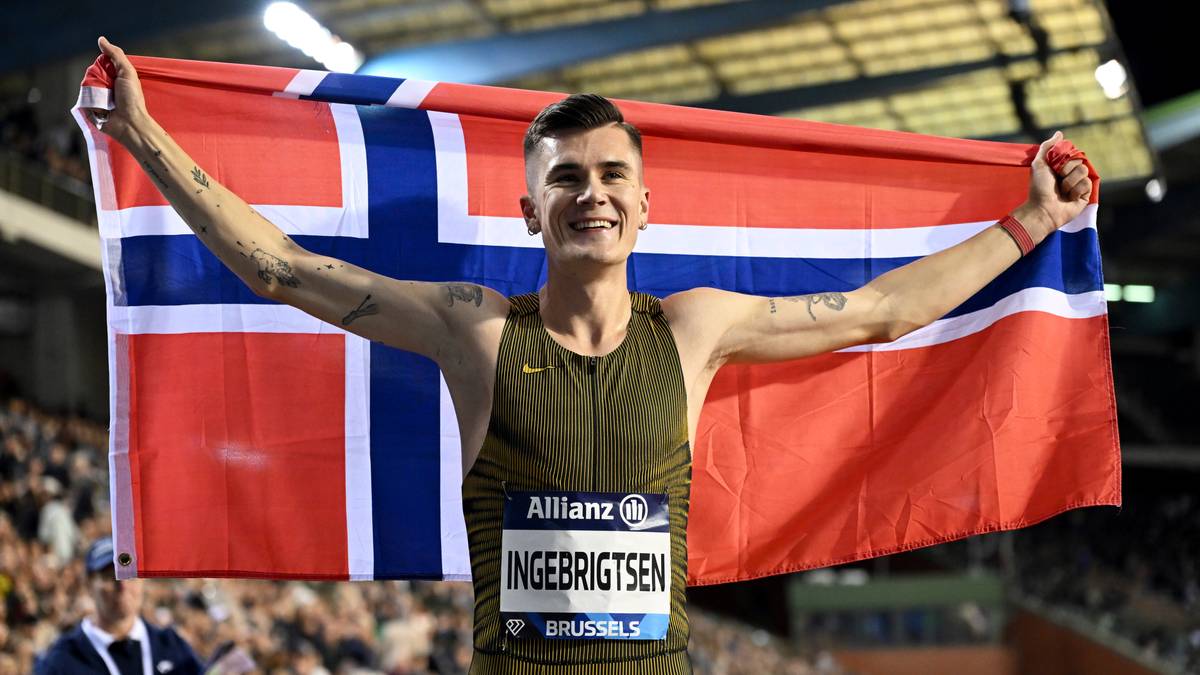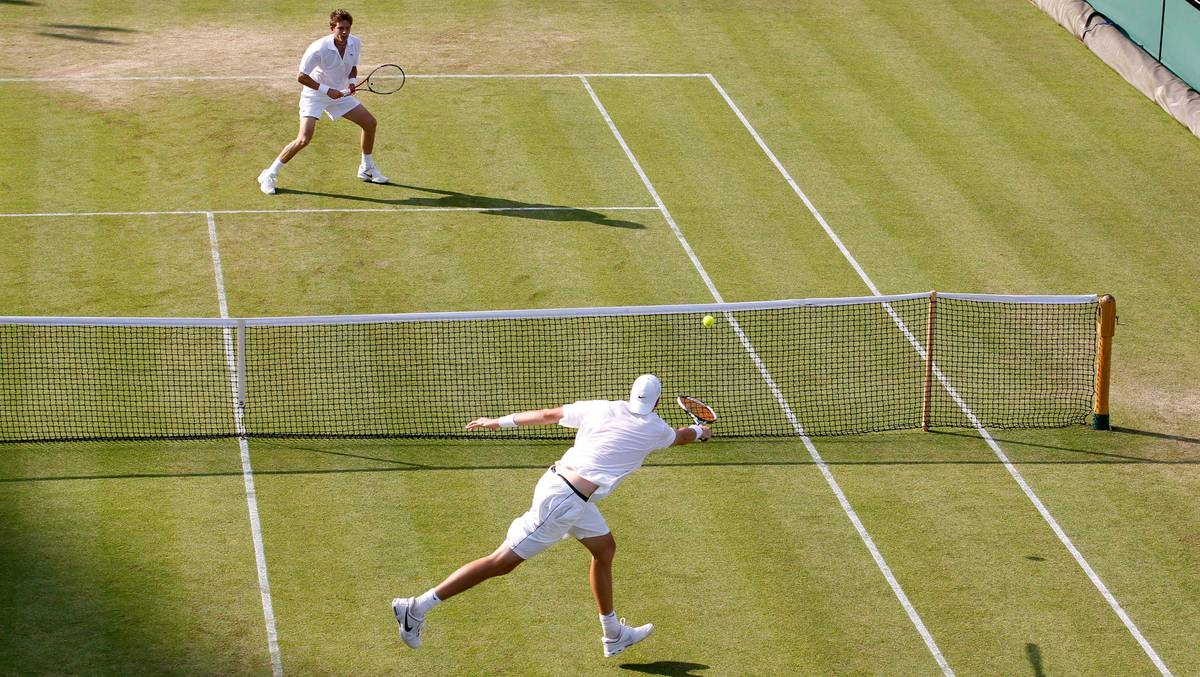Sweden has indeed awarded a record contract for this championship, where the blue and yellow are the favorites.
Sweden’s numbers for participation and possibly EC gold are much larger than the Norwegian ones.
Where Sweden gives each player NOK 254,000 (261,000 Swedish kroner) for participating, Norway’s NOK amount is 81,000.
The amount rises gradually throughout the tournament. If Sweden are successful and take EC gold, each player will earn NOK 563,000 – NOK 12.9 million in total.
If Norway secures European Championship gold, each player will receive NOK 210,000 – around NOK 5 million in total.
Ada Hegerberg and the national team celebrated their win over New Zealand at Ullevaal recently. But the numbers for possible European Championship gold are on a whole different level compared to Sweden.
Photo: Terje Pedersen/NTB
Will increase the status
The reason for the big difference lies in the distribution of UEFA’s money. Where Norway gives 25 per cent of UEFA’s revenue to players, the Swedish federation in practice passes it all on to the playing squad.
This is what Swedish press manager Jens Anderson told NRK.
– In essence, all compensation that the SvFF (Swedish Football Association) receives from UEFA goes directly to the players. We hope, and will work together, that the bonuses will be even higher at the women’s championships in the future, said Andersson.
According to him, it is appropriate for the Swedish squad to receive a high bonus.
– We have one of the best national teams in the world, which made it far in the Olympics and World Cups. We think it makes sense that the team gets a nice bonus from him. Unfortunately, women’s football continues to be underestimated in the world of football. We will do our part to elevate the status of the sport and respect for athletes, said Andersson.

Acting Secretary General Kai-Erik Arstad.
Photo: Vidar Ruud/NTB scanpix
Guaranteed increased bonuses
Norway’s agreement with a 25 per cent bonus scheme is part of a historic four-year agreement dating back to 2017. The agreement ensures equal payouts for the national team, and the men’s national team, among other things, gives a share of its marketing revenue to women.
The agreement secures women NOK six million a year.
Acting Secretary General Kai-Erik Arstad at the NFF, however, acknowledged that they should look at the bonus scheme in the next deal period.
When NRK highlighted the big differences from Sweden, he replied:
– Credit to Sweden for that. Compared to the Swedish women’s team, we are dissatisfied because we earned less. I’m leaving out of that they financed this through participation in the men’s championships. Now our deal is part of a four year deal that was negotiated, but worked out well behaved negotiations between Niso/the players and the NFF, and the outcome will be clear in August. So, there will be a larger portion and number of toilets next year, said Arstad.
– Significant improvements
EC 2021, as is known, was moved to 2022, so the deal also applies to this championship.
– Is it relevant to renegotiate percentages before EC?
– No, the player and Niso have already considered the deal, so there’s no problem, said Arstad.
– I I’m assuming Niso and the players would be negotiating by now if the NFF wanted it too?
– Well, as long as the girls wanted more, they probably wouldn’t complain about it. But also yearly budget process, and the budget for this year was adopted last year. Sweden has just changed, and we will change too. I’m not sure how Sweden financed the participation itself. board, lodging, hotel, travel and precamp in Denmark means that it costs at least NOK six million just to participate, says Arstad, which shows that the NFF contributes financially beyond the funds Becomes granted by UEFA.
Niso manager Erlend Hanstveit stressed that the equal pay agreement secured a total of NOK 24 million for the women’s national team over four years. He is most concerned about the huge differences in prize money for women and men from UEFA and FIFA.
– One of the things we’re working on is 25 percent of the prize money just isn’t enough. The goodwill of the NFF is good, but the room for maneuver when the prize money is there, is not that great, Hanstveit told NRK.
The UEFA pot for EC for men last year was 371 million euros. For EC for women, the prize money totals 16 million euros, according to UEFA.
– The European Cup bonus depends on previous deals, and we can call that bad luck considering that, fortunately, there has been a tremendous development. But the big bias lies in the prize money from UEFA and FIFA. The oddity is a large and heavy ship to turn, said Hanstveit.

“Infuriatingly humble coffee guru. Travel practitioner. Freelance zombie fanatic. Certified problem solver. Food scholar. Student.”





